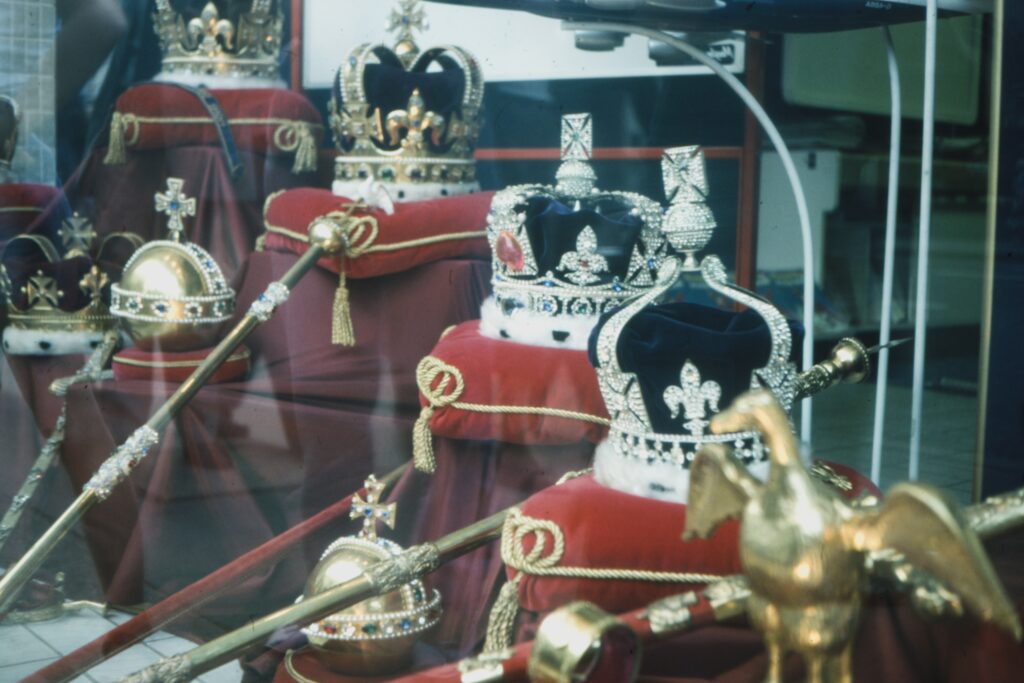The coronation of Charles III has again raised the question of whether Australia and Australians are ready to become a republic. Polls suggest they are.

The coronation of King Charles III has again raised the question of whether Australians are ready to ditch the monarchy and embrace a republic, with an Australian as head of state.
This comes as more than 3 million Australians tuned in on Saturday night to watch the coronation of the new king. 3.46 million Australians also watched the funeral of Queen Elizabeth II last year, impressive numbers for a country of 26 million people.
But do Australians genuinely support the monarchy, or are they simply interested in the tradition, nostalgia and theatrics of royal pomp and ceremony?
Recent polling might be able to answer this question.
In April, polling funded by the Australian Republic Movement showed support for the monarchy has dropped since the start of Charles’ reign. Only 40% of Australians would prefer to have Charles as head of state, while 60% said they wanted an Australian chosen by Australians. This percentage was higher for young people, with 69% of Australians aged 18-35 opposed to a foreign head of state.
This is a huge turnaround.
In 2021, an Ipsos poll found that only 34% of Australians were in favour of a republic, with 40% keen to stick with the monarchy. 26% undecided were undecided.
This was the lowest support for a republic since 1979, which peaked at 57% in 1999.
Before the coronation, the Co-chair of the Australian Republic Movement Nova Peris said polling showed that “Australians are now well and truly ready to embrace a more equal future where all Australians are treated equally under our Constitution.”
Fellow Co-chair Craig Foster used the same opportunity to say that the coronation is a reminder that Australians have no choice about who is their head of state and that “it’s time our head of state was an Australian, chosen by us, accountable to us and serving all of us.”
Discussion on a republic comes at an interesting time in Australia.
It has been 24 years since the failed referendum on Australia becoming a republic, with Australians choosing to stick with the late Queen.
Since then, the republican movement patiently, and out of respect, called for a vote after the Queen passed away.
In 2016, former Prime Minister and republican Malcolm Turnbull said that he did not believe “Australia would welcome, let alone support, another public referendum during her reign”.
But now, two things have changed.
First, the Queen passed away last year, removing an awkward barrier for many republicans and the reason why many Australians were keen to keep the status quo in 1999.
Second, Australia now has a “lifelong republican” Prime Minister, Anthony Albanese, who, at the last election set aside $160 million for a referendum on Australia becoming a republic.
However, it is unlikely the poll will be held before elections in 2025, due to Albanese focusing on another referendum to recognise Indigenous Australians in the constitution.
A referendum has been part of Albanese’s Labor Party’s manifesto for some time, with former leader Bill Shorten promising a vote before the party ultimately lost the 2019 election.
Now, with a new monarch, the republican movement appears to have momentum.
But whether this can be translated into a successful referendum remains to be seen.
This is because constitutional change in Australia is hard to achieve.
Australia’s constitution can only be changed with a double majority, a majority of voters in a majority of states, and a national majority of voters in total.
This means that a majority of the population, and all states, needs to support the change to a republic if the referendum has any chance of succeeding.
It’s no surprise then the last time a referendum succeeded was in 1977.
But Australia is not the country it was two decades ago. Things have changed.
Australia has a republican in the Prime Ministerial Lodge. No referendum has succeeded without one.
Australia is also increasingly multicultural, with India and China providing the most permanent migrants. Cultural ties have changed over time and new migrants do not have a meaningful connection to the crown.
Polls suggest that young people are moving further away from the monarchy and towards a republic. This divide will only deepen as traditional monarchists – older, white Australians – get older and pass away.
Finally, Australia is a wealthy, confident country that plays a vital leadership role in Asia. Having an Australian as head of state would be an important symbolic move that aligns the country ever closer to its region.
The decision is of course up to Australians, but the polls are increasingly reflecting this view.
Australia will always have ties to the United Kingdom, and it will likely remain in the Commonwealth, just like India after its independence.
But the time for Australia to shed its colonial past may have finally come.
Chris Fitzgerald is a freelance journalist based in Melbourne. He writes on political and human rights issues in the Indo-Pacific region.





